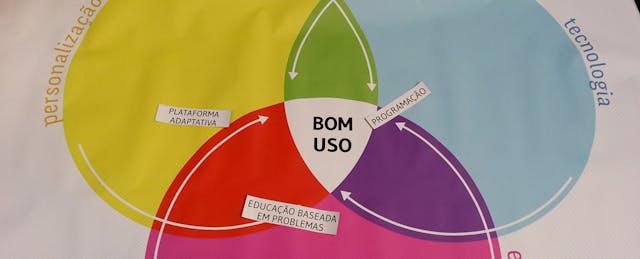Sitting next to me on my flight to Toronto from Sao Paulo is a young Brazilian man, Alberto Nascimiento. He’s a little fidgety and jittery. It’s understandable: he’s leaving his country for the first time, headed to University of New Brunswick near St. John. But he’s got even more “firsts” packed in his bag: He is the first in his family to attend college--let alone go to one overseas. He admits he’s been very fortunate to make it this far. He hails from Cuiaba, a city deep in the interior of Brazil, where he attended public school for 12 years.
For years, the country’s public education system, from kindergarten up through high school, has been a point of embarrassment. In the OECD’s Better Life Index, Brazil scores an abysmal 1.9 (out of 10) on education. On the 2012 PISA, a test taken by 15-year olds that is often used to benchmark countries’ comparative performance on math, reading and science, Brazil placed 58th out of the 65 countries.
Assessments aside, many Brazilians simply lack access to education. According to research from Artemisia, an incubator for social impact startups:
- Only 65% of students complete elementary and middle school;
- 13 million high school graduates don’t attend college, a number that is increasing by 700,000 every year;
- Only 21% of those who enter college finish their studies;
- 41 million adults of Brazil’s population of 201 million are illiterate.
As the world turns its attention to Brazil for the 2014 World Cup, a growing chorus of unhappy citizens are putting the spotlight on these issues (sometimes violently). Brazilian President, Dilma Rousseff says she is not deaf to the problems, and asserts that her administration has set aside a $50-billion education budget--six times the amount allotted by her predecessor.
But money alone won’t fix education. “The government likes to spend a lot of money on technology in schools but not much of it gets used,” says Nascimiento.
There is also widespread pessimism about the government’s ability to effectively tackle this issue (or any for that matter). In a Spring 2014 survey conducted by the Pew Research Center, 64% of respondents cited “poor quality schools” as a top concern, and 71% disapproved of Rousseff’s handling of education issues.
Come Together, Right Now
But where the government has been slow, the Brazilian private sector is stepping up. In the past couple years, foundations and investors have begun betting that education startups can make a difference.
Venture capital and appetite for education companies is growing. In March 2014, the German media conglomerate, Bertelsmann, partnered with Bozanos Investments (a Brazilian fund) to create a $43 million fund for education technology investments. It’s invested in two startups so far and is looking to do another eight deals by 2015. Another edtech fund, Gera Ventures, has already invested in a handful of companies in Brazil and abroad.
Foundations are trying to play a role to connect and mentor education startups. Artemisia regularly organizes workshops where edtech entrepreneurs meet with investors, industry representatives and local government officials about business models and selling to schools. A session in April brought together entrepreneurs from twelve startups, many of whom were building products that tackled issues common around the world--from education data management, language and learning games to teacher training and test prep.
Another effort is Start-Ed, a program launched in 2013 by the Lemann Foundation (a non-profit philanthropy founded in 2002 by Brazilian billionaire, Jorge Paul Lemann). The program has two stages. The “Start-Ed Lab” provides financial support (up to US $20,000) and mentorship to help early stage entrepreneurs refine their products and business plans. “Start-Ed in Schools” offers £100,000 to £300,000 to startups with developed products to run pilots in public schools and conduct efficacy assessments. (Participant list here.)
As a result, the edtech ecosystem is growing. "Less than three years ago, we could only find a handful of edtech startups. Today, we've counted more than 200," says Anna Penido, Executive Director of Inspirare, a non-profit dedicated to supporting education initiatives in Brazil.
“We are really optimistic with the learning outcomes that edtech companies are showing in the country so far,” says Bruno Neves, a partner at Gera Ventures.
Even so, the business outcomes are largely unproven. Venture capital is a relatively new industry in Brazil, Neves warns, and some the earliest firms are just beginning to see returns. That, combined with the general inexperience of startup entrepreneurs, means that these funds are risk averse and will tread carefully.


